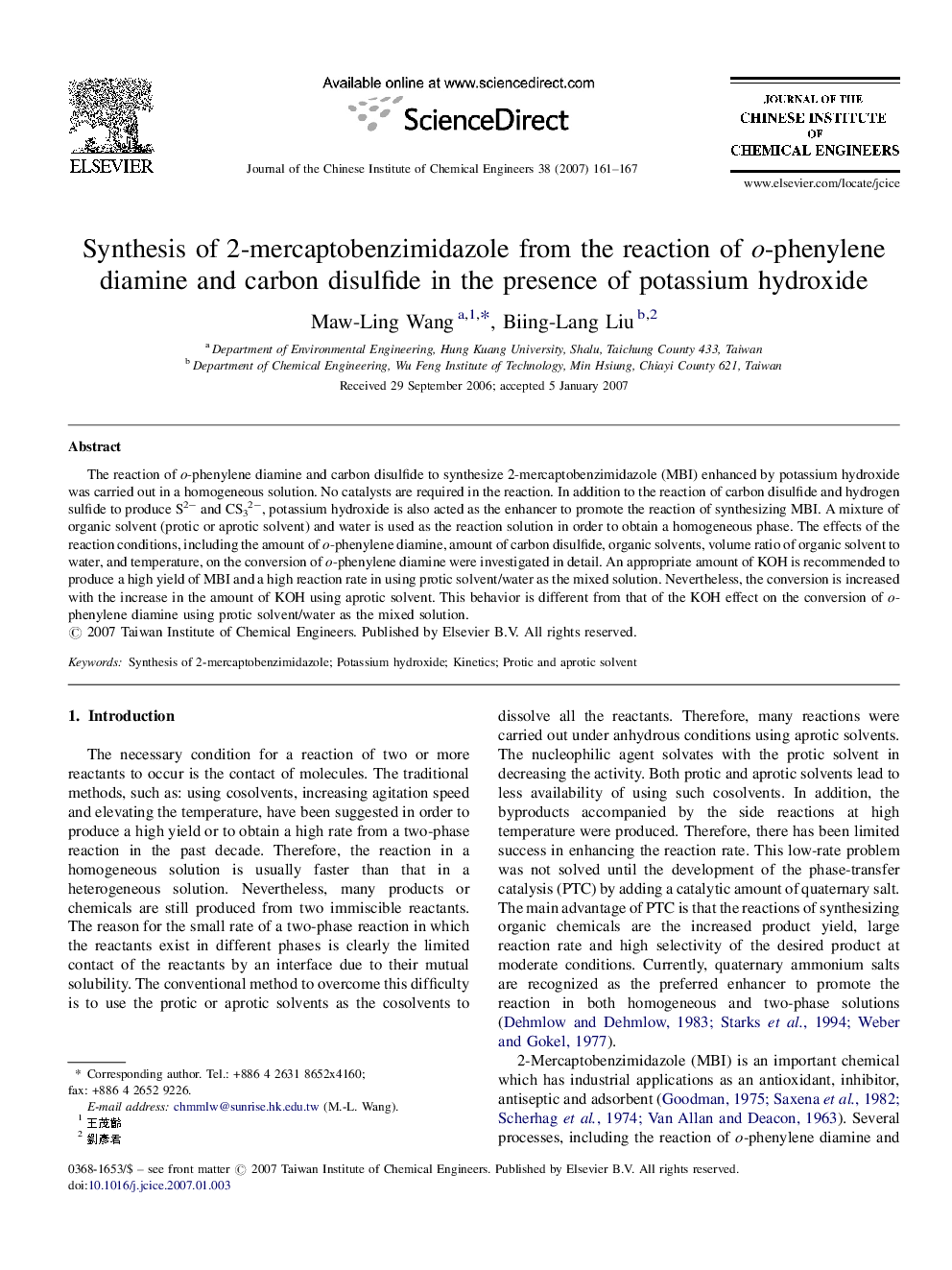| Article ID | Journal | Published Year | Pages | File Type |
|---|---|---|---|---|
| 217749 | Journal of the Chinese Institute of Chemical Engineers | 2007 | 7 Pages |
The reaction of o-phenylene diamine and carbon disulfide to synthesize 2-mercaptobenzimidazole (MBI) enhanced by potassium hydroxide was carried out in a homogeneous solution. No catalysts are required in the reaction. In addition to the reaction of carbon disulfide and hydrogen sulfide to produce S2− and CS32−, potassium hydroxide is also acted as the enhancer to promote the reaction of synthesizing MBI. A mixture of organic solvent (protic or aprotic solvent) and water is used as the reaction solution in order to obtain a homogeneous phase. The effects of the reaction conditions, including the amount of o-phenylene diamine, amount of carbon disulfide, organic solvents, volume ratio of organic solvent to water, and temperature, on the conversion of o-phenylene diamine were investigated in detail. An appropriate amount of KOH is recommended to produce a high yield of MBI and a high reaction rate in using protic solvent/water as the mixed solution. Nevertheless, the conversion is increased with the increase in the amount of KOH using aprotic solvent. This behavior is different from that of the KOH effect on the conversion of o-phenylene diamine using protic solvent/water as the mixed solution.
